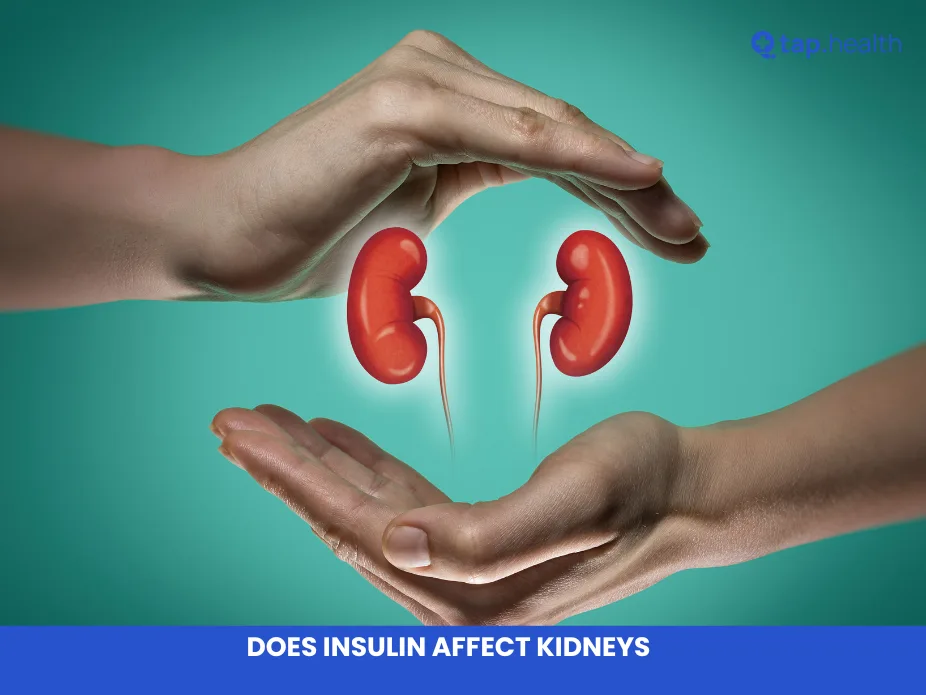If you have diabetes, you’ve probably heard about blood sugar, insulin, and glucagon, but what about glycogen? This stored form of glucose plays a big role in how your body manages energy, and it’s especially important for people with diabetes. But is glycogen good or bad for diabetics? The answer isn’t a simple yes or no—it depends on how your body handles it and how well you manage your diabetes. In this guide, we’ll break down what glycogen is, how it affects diabetes, and what you can do to keep your blood sugar stable. Let’s dive in with simple, easy-to-understand information backed by trusted health sources.
What Is Glycogen and Why Does It Matter?
Glycogen is like your body’s backup battery for energy. It’s a form of glucose (sugar) that your body stores in your liver and muscles to use when you need a quick energy boost. When you eat carbohydrates, your body breaks them down into glucose. If there’s extra glucose in your blood, your body turns it into glycogen and saves it for later. This process helps keep your blood sugar levels steady.
For people with diabetes, glycogen is important because it’s closely tied to blood sugar control. When your blood sugar drops too low (hypoglycemia), your body can break down glycogen into glucose to raise it. But if your diabetes isn’t well-managed, problems with glycogen storage or breakdown can mess with your blood sugar levels. According to the Cleveland Clinic, glycogen is your body’s way of making sure glucose is always available when you need it.
How Glycogen Works in the Body
- Storage: After eating carbs, your pancreas releases insulin, which helps your liver and muscles store glucose as glycogen.
- Release: When your blood sugar drops (like during fasting or exercise), your pancreas releases glucagon, a hormone that tells your liver to break down glycogen into glucose for energy.
- Balance: In healthy people, this system keeps blood sugar stable. In diabetics, this balance can be off, leading to high or low blood sugar.
How Does Glycogen Affect People with Diabetes?
For diabetics, glycogen can be both a helper and a challenge. Diabetes affects how your body makes or uses insulin, which impacts how glucose is stored as glycogen or released back into the blood. Let’s look at how this works for type 1 and type 2 diabetes.
Type 1 Diabetes and Glycogen
In type 1 diabetes, your body doesn’t make insulin because your immune system attacks the pancreas. Without insulin, your muscles and liver can’t store glucose as glycogen effectively. This can lead to high blood sugar (hyperglycemia) because glucose stays in your blood instead of being stored. Studies from the American Diabetes Association show that people with type 1 diabetes may also have lower liver glycogen levels, making it harder to recover from low blood sugar episodes.
- Hypoglycemia Risk: If you take too much insulin, your blood sugar can drop too low, and your body may struggle to release glycogen fast enough to fix it.
- Treatment Impact: Good insulin management can help normalize glycogen storage and breakdown, but it’s not perfect compared to a healthy body.
Type 2 Diabetes and Glycogen
In type 2 diabetes, your body either doesn’t make enough insulin or can’t use it well (insulin resistance). This affects glycogen in different ways. Research from the American Journal of Physiology shows that people with type 2 diabetes often have lower muscle glycogen levels due to insulin resistance, which can make blood sugar control harder.
- Insulin Resistance: Your muscles don’t take in glucose as well, so less is stored as glycogen, leading to higher blood sugar.
- Liver Issues: Your liver may release too much glycogen as glucose, even when you don’t need it, causing high blood sugar.
Glycogen Storage Diseases and Diabetes
Rare conditions called glycogen storage diseases (GSDs) can also affect diabetics. These are genetic disorders where your body can’t make or break down glycogen properly, leading to buildup or shortages. For example, GSD type 1a can cause severe hypoglycemia and, in rare cases, lead to type 2 diabetes later in life. If you have both diabetes and a GSD, managing blood sugar is extra tricky.
Is Glycogen Good for Diabetics?
So, is glycogen good for diabetics? It’s not inherently good or bad—it’s a natural part of how your body manages energy. The key is how well your body controls glycogen storage and release. When managed properly, glycogen can help prevent low blood sugar and provide energy for daily activities. But if diabetes is poorly controlled, glycogen can contribute to blood sugar swings.
Benefits of Glycogen for Diabetics
- Prevents Hypoglycemia: Glycogen in your liver can release glucose to raise blood sugar during fasting or exercise, helping avoid dangerous lows.
- Supports Exercise: Muscle glycogen provides energy for physical activity, which is great for managing diabetes and improving insulin sensitivity.
- Energy Reserve: Glycogen acts as a backup fuel source, ensuring your body has energy even if you miss a meal.
Risks of Glycogen for Diabetics
- High Blood Sugar: If your liver releases too much glycogen (common in type 2 diabetes), it can spike your blood sugar.
- Low Glycogen Stores: In type 1 diabetes, low glycogen levels can make it harder to recover from hypoglycemia.
- Kidney Concerns: Some research suggests that abnormal glycogen buildup in the kidneys of diabetics may harm kidney function, though this isn’t fully understood.
How Can Diabetics Manage Glycogen Levels?
To make glycogen work in your favor, you need to manage your diabetes well. Here are practical tips to keep your glycogen and blood sugar in check.
Control Blood Sugar with Diet
Eating the right foods helps your body store and use glycogen effectively. Focus on low-glycemic carbs that release glucose slowly to avoid blood sugar spikes.
- Choose Complex Carbs: Whole grains, beans, and vegetables provide steady energy and support glycogen storage without spiking blood sugar.
- Limit Sugary Foods: Sweets and sodas can overload your blood with glucose, making it harder to store as glycogen.
- Eat Regularly: Small, balanced meals every 3-4 hours keep your blood sugar stable and support glycogen production.
Exercise to Improve Glycogen Use
Exercise is a powerful tool for managing glycogen and diabetes. It helps your muscles use glycogen for energy and improves insulin sensitivity, allowing better glucose storage.
- Moderate Cardio: Walking, cycling, or swimming for 30 minutes most days uses muscle glycogen and lowers blood sugar.
- Strength Training: Lifting weights builds muscle, which can store more glycogen and improve insulin response.
- Post-Exercise Carbs: Eating carbs after exercise helps replenish muscle glycogen, which is especially important for active diabetics.
Take Medications as Prescribed
If you take insulin or other diabetes medications, follow your doctor’s instructions. These meds help regulate how your body stores and releases glycogen.
- Insulin for Type 1: Proper insulin doses mimic the body’s natural process, helping store glucose as glycogen.
- Metformin for Type 2: This drug reduces liver glucose production, which can prevent excess glycogen breakdown.
- Monitor Closely: Check your blood sugar regularly to avoid lows or highs that can disrupt glycogen balance.
Avoid Stress and Get Enough Sleep
Stress and poor sleep can mess with your hormones, causing your liver to release glycogen when you don’t need it. Practice stress-relief techniques like deep breathing or meditation, and aim for 7-8 hours of sleep nightly.
Does Glycogen Cause High Blood Sugar in Diabetics?
One big concern for diabetics is whether glycogen can raise blood sugar too much. In type 2 diabetes, the liver sometimes releases glycogen as glucose even when your blood sugar is already high, worsening hyperglycemia. This happens because of insulin resistance or poor glucagon control.
How to Prevent Glycogen-Related Blood Sugar Spikes
- Better Insulin Sensitivity: Exercise and weight loss improve how your body responds to insulin, reducing unwanted glycogen breakdown.
- Medications: Drugs like metformin or SGLT2 inhibitors can lower liver glucose output.
- Regular Monitoring: Use a glucometer to catch high blood sugar early and adjust your diet or meds.
Can Glycogen Help with Hypoglycemia in Diabetics?
Yes, glycogen is a lifesaver for preventing or treating low blood sugar. When your blood sugar drops, your liver breaks down glycogen to release glucose, raising your levels. However, in type 1 diabetes, low glycogen stores or excessive insulin can make this process less effective, increasing hypoglycemia risk.
Tips to Support Glycogen for Hypoglycemia
- Keep Glycogen Stores Full: Eat enough carbs daily to maintain liver and muscle glycogen.
- Carry Fast-Acting Carbs: Glucose tablets or juice can quickly raise blood sugar if glycogen release isn’t enough.
- Glucagon Kits: For severe hypoglycemia, a glucagon injection can trigger glycogen breakdown. Talk to your doctor about keeping one on hand.
Is Glycogen Buildup Harmful for Diabetics?
In rare cases, abnormal glycogen buildup can cause problems. For example, research from the National Institutes of Health suggests that glycogen accumulation in the kidneys of diabetics may contribute to kidney damage, though more studies are needed. In glycogen storage diseases, excessive glycogen can harm the liver or muscles, but this is uncommon in typical diabetes.
How to Avoid Harmful Glycogen Buildup
- Control Blood Sugar: Keeping glucose levels stable prevents excess glycogen storage in organs like the kidneys.
- Regular Check-Ups: Kidney and liver function tests can catch any issues early.
- Work with Your Doctor: If you have a rare condition like GSD, a specialist can guide your treatment.
How Does Exercise Affect Glycogen in Diabetics?
Exercise is a double-edged sword for glycogen in diabetics. It burns glycogen for energy, which lowers blood sugar, but it can also deplete glycogen stores, increasing hypoglycemia risk if you don’t refuel properly.
Safe Exercise Tips for Glycogen Management
- Check Blood Sugar Before and After: This helps you avoid lows during or after exercise.
- Eat Carbs Before Workouts: A small carb snack (like fruit) fuels your muscles and preserves glycogen.
- Replenish After Exercise: Eating carbs within 30 minutes post-workout restores glycogen and prevents lows.
Can Diet Affect Glycogen Levels in Diabetics?
Absolutely! Your diet directly impacts how much glycogen your body stores and how it’s used. A balanced diet with the right carbs ensures healthy glycogen levels without blood sugar spikes.
Best Foods for Glycogen Storage
- Whole Grains: Oats, brown rice, and quinoa provide slow-release carbs for steady glycogen storage.
- Fruits and Veggies: Apples, berries, and leafy greens offer carbs plus fiber to stabilize blood sugar.
- Protein and Fats: Pair carbs with lean meats, nuts, or avocado to slow glucose absorption.
Foods to Avoid
- Sugary Snacks: Candy and soda cause quick glucose spikes, overwhelming glycogen storage.
- Refined Carbs: White bread and pasta can raise blood sugar too fast, disrupting glycogen balance.
Are There Medications That Affect Glycogen in Diabetics?
Some diabetes medications influence how your body handles glycogen. For example, insulin promotes glycogen storage, while metformin reduces liver glycogen breakdown. SGLT2 inhibitors, a newer class of drugs, lower blood sugar by increasing glucose excretion in urine, which may indirectly affect glycogen metabolism.
Talk to Your Doctor
Always discuss your medications with your doctor to understand how they affect glycogen and blood sugar. Adjusting doses or timing can optimize glycogen management.
Can Glycogen Be a Problem in the Kidneys for Diabetics?
Emerging research suggests that glycogen buildup in the kidneys of diabetics might contribute to diabetic kidney disease, but it’s not clear if glycogen is harmful or protective. Normally, kidneys have very little glycogen, but in diabetes, high glucose levels may lead to abnormal storage.
Protecting Your Kidneys
- Control Blood Sugar and Blood Pressure: This reduces stress on your kidneys.
- Stay Hydrated: Drinking water supports kidney function.
- Get Regular Kidney Tests: Blood and urine tests can monitor kidney health.
FAQ: Common Questions About Glycogen and Diabetes
Q: Is glycogen the same as glucose?
A: No, glucose is a simple sugar in your blood, while glycogen is a stored form of glucose in your liver and muscles. Your body converts glycogen back to glucose when needed.
Q: Can low glycogen cause hypoglycemia in diabetics?
A: Yes, especially in type 1 diabetes. Low glycogen stores mean your body can’t release enough glucose to fix low blood sugar, increasing hypoglycemia risk.
Q: Does exercise always lower glycogen levels?
A: Exercise uses glycogen for energy, lowering levels temporarily. Eating carbs after exercise restores glycogen.
Q: Can glycogen buildup harm my liver if I have diabetes?
A: In typical diabetes, glycogen buildup in the liver isn’t usually harmful. But in rare glycogen storage diseases, it can cause liver damage. Good diabetes management prevents issues.
Q: How does insulin affect glycogen in diabetics?
A: Insulin helps store glucose as glycogen in your liver and muscles. In type 1 diabetes, lack of insulin reduces glycogen storage. In type 2, insulin resistance can disrupt this process.
Q: Are there tests to check glycogen levels?
A: There’s no simple test for glycogen levels, as they change constantly. Doctors use blood tests or imaging (like MRI) to check glycogen metabolism if a storage disease is suspected.
Q: Can a low-carb diet affect glycogen in diabetics?
A: Yes, low-carb diets reduce glycogen stores because you eat fewer carbs. This can help control blood sugar but may increase hypoglycemia risk if not managed carefully.
Q: Is glycogen safe for diabetics to rely on for energy?
A: Yes, glycogen is a safe energy source if your diabetes is well-managed. It provides quick energy during exercise or fasting, but poor control can lead to blood sugar swings.
Final Thoughts
Glycogen isn’t good or bad for diabetics—it’s a natural part of how your body handles energy. For people with diabetes, glycogen can help prevent low blood sugar and fuel exercise, but it can also contribute to high blood sugar if not managed properly. By controlling your blood sugar with diet, exercise, and medications, you can keep glycogen working for you, not against you. Always work with your doctor to create a plan that fits your needs. With the right steps, you can manage glycogen, stay active, and live well with diabetes!



